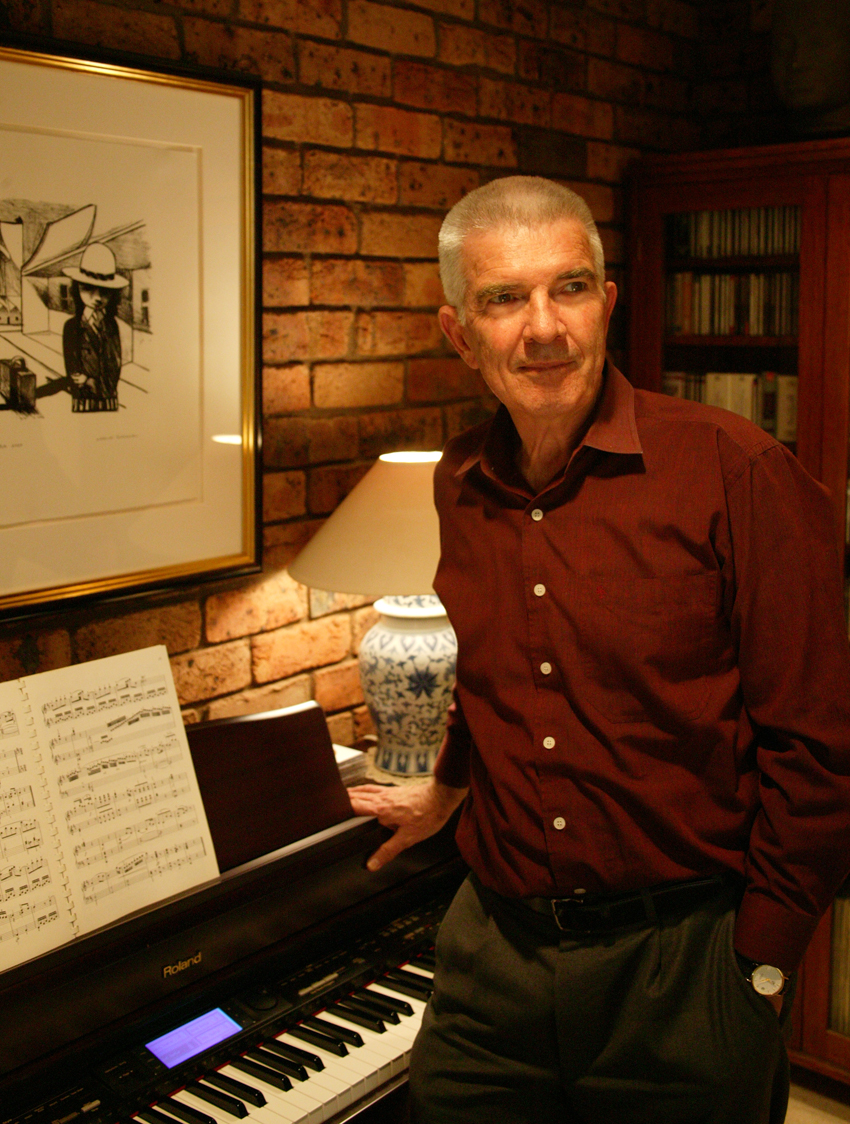Jubilee Fellow – 2015

Professor Don Aitkin AO
MA (UNE), PhD (ANU), Hon DUniv (Canberra), Hon DLitt (UNE)
Discipline: Political Science
Year Elected: 1975
2015 Reflections
I was in London in 1975 when a letter arrived telling me that I had been elected a Fellow of the Academy. It was, as it should have been, a complete surprise. More, I didn’t know much about the Academy. I did know of its predecessor, the Social Sciences Research Council of Australia, because a couple of my seniors at ANU had been members and had talked about it. But the Academy was new to me, and what my election meant I still had to find out.
A few years later I was in Canberra again, and before long a member of the Executive, working hard for the Academy, and among other things producing one of the Academy’s summaries of social science work. A few years later still, as the Chairman of the Australian Research Council, I was advising the Minister that these learned academies were a great Australian resource, deserving of consistent and reliable funding. I had a modicum of success.
Thereafter I was a vice-chancellor, preoccupied with the needs of my university, its staff and its students. I came to the annual meetings where I could, but mostly to meet the friends I had made through academic life, like Bruce Miller, Jamie Mackie, Norm Feather (who had taught me in undergraduate psychology), Jacqui Goodnow and John Nevile — there were, and are, many more. The Fellowship, in its other sense, remains a most positive part of the Academy’s purpose.
That said, I have never been sure of the real purpose of these learned societies. They control and distribute honour, they can do some things in creating intellectual networks probably better than any other organisations, and they can focus public attention on problems, at least for a day or two. I have learned over a working lifetime in the social sciences that one conference, one paper, one letter, is never enough. One has to be persistent, consistent and coherent in arguing for the outcomes of research, and confident that one’s own position can be defended honestly and easily. The Academy provides a platform for such arguments, but I am not sure that its efforts have been attended by real success. Have they in any other field, and in any other country?
Nearly thirty years have passed since I was in any real sense an academic with an active research agenda. As with so many others, my early years were both the most original and the most productive. Once I became a professor it was as though my proper task now was to develop my staff and my best students, and steer them into more productivity, better work and in time more senior positions. I did that happily enough, but it wasn’t as exciting or as satisfying as pursuing the evolution of one’s own ideas. I enjoyed working on farmers and their politics, a theme I pursued for a decade, and also on Australians’ political attitudes and behaviour, another theme that occupied a decade. After that, I became steadily more involved in ‘policy’, administration and leadership, activities that made the most of what I had learned already.
If the social sciences can be thought of as the game of cricket, and one is picking a team, I am best seen as a useful all-rounder, rather than a top-order batsman or strike bowler. In political science you could pick a good team from the last forty years that wouldn’t include me, without any sadness on my part. I had the luck to be drawn into academic life at a time when higher education expanded, and was abler to enjoy a most satisfying working life, which has not finished, though my focus now is fiction rather than non-fiction. I met many outstanding people through it, many of them Fellows of our Academy or of one of the others. All of us worked hard for our disciplines, our universities, and our students. I look back on all that with a feeling of completeness.
Where academic life will go in the next forty years I do not know, and have no strong feelings about it. The period of the 1960s and the early 1970s were years of optimism, ambition and great energy. I miss that feeling, and do not see it in Australia today, though our country is so much better in so many ways. The notion of doom, gloom and catastrophe is widespread, notwithstanding the fact that our society is better educated, more creative, better travelled and more innovative than was the case half a century ago.
Perhaps that is a possible topic for a future Colloqium!